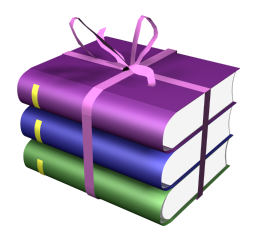Chogyal Phagpa: The Emperor's Guru: Translated by Christopher Wilkinson (Sakya Kongma Series Book 5) (English Edition) [Kindle-editie] beoordelingen het boek quotes
van Chogyal Phagpa
Chogyal Phagpa: The Emperor's Guru: Translated by Christopher Wilkinson (Sakya Kongma Series Book 5) (English Edition) [Kindle-editie]
Chogyal Phagpa (1235-1280) was the fifth of the great founders of the Sakya tradition of Tibetan Buddhism. His birth-name was Lodro Gyaltsan Pal Zangpo. At the age of ten he was taken from his homeland in Western Tibet to the capitol of the Mongol Empire in China, along with his little brother. Living there under the tutelage of his uncle, Sakya Pandita, he received a rigorous education in all aspects of Tibetan culture and literature, while he also became a fluent speaker of Mongolian. Growing up at court, he became familiar with the inner workings of the Mongol Empire at its height. One of his great achievements was the development of a writing system for the Mongols, who had been managing their global empire without even an alphabet for their own language. His prestige at the Mongol court was sufficient that he was entrusted with the investiture of Kubala Khan as Emperor. Kubala took Phagpa as his own spiritual instructor, and made him the effective Minister of Religious Affairs for all of the Yuan Dynasty. Phagpa was gifted by the Khan with temporal authority over the thirteen myriarchies of Tibet, effectively releasing it from the direct governmental control of the Yuan Dynasty. So it was that he was awarded the title: “Chogyal,” or Dharma King. The writing system that Phagpa developed was established as the official language of the government of the Yuan Dynasty in 1268. While we cannot know the degree of Phagpa’s competency in the Chinese language, his impact on Chinese religion and cultural concerns was no doubt substantial. The degree to which Phagpa’s ideas and policies may have affected the world at large, through his influence on the Mongols, is a topic of which little is known to the modern world. Chogyal Phagpa’s collected writings are preserved in three large volumes of the Sa skya bka’ ‘bum, the Collected Works of the Sakya Founders. The present anthology is a mere sampling. It is the usual practice of political historians to seek out and document writings directly relevant to policy and political history, while the usual practice of the community interested in Buddhist practice and theory is to seek out and analyze texts that address philosophy or meditative practices. The present anthology represents a different approach. I have brought together for you a large selection of Phagpa’s own writings, ranging from poetry he wrote in praise of yaks and beer to such important documents as his poem for the investiture of the Emperor: In Praise of Friendship. I have included such works as his Rosary of Jewels: Praise of Mañjuśrī on Wu Tai Shan, in which we find one of the earliest recorded documentations of the fantastic spectacle of strange lights on these famous mountains. You will also find a variety of short works that touch on the practice and understanding of Buddhism. It is said that it was at the conferral of the Great Empowerments into the mysteries of Hevajra that Kubala Khan ritually offered Phagpa the entire nation of Tibet. A few poems connected with this empowerment are included in the present collection. The importance of Chogyal Phagpa’s writings and correspondence in understanding Tibet’s influence on the Yuan Dynasty cannot be overestimated.
Populaire auteurs
Cram101 Textbook Reviews (948) J.S. Bach (447) Wolfgang Amadeus Mozart (305) Collectif (268) Schrijf als eerste een recensie over dit item (259) Doug Gelbert (238) Princess of Patterns (211) Charles Dickens (209) R.B. Grimm (197) Carolyn Keene (187) Jules Verne (183) Philipp Winterberg (180) William Shakespeare (174) Youscribe (172) Lucas Nicolato (169) Edgar Allan Poe (166) Herman Melville (166) Anonymous (165) Gilad Soffer (164) Robert Louis Stevenson (159)Populaire gewichtsboeken
418 KB 425 KB 435 KB 459 KB 445 KB 439 KB 386 KB 413 KB 493 KB 432 KB 455 KB 471 KB 421 KB 451 KB 485 KB 472 KB 416 KB 369 KB 419 KB 427 KB![Chogyal Phagpa: The Emperor's Guru: Translated by Christopher Wilkinson (Sakya Kongma Series Book 5) (English Edition) [Kindle-editie] beoordelingen Chogyal Phagpa: The Emperor's Guru: Translated by Christopher Wilkinson (Sakya Kongma Series Book 5) (English Edition) [Kindle-editie] beoordelingen](http://files-castle.com.website.yandexcloud.net/books/07342d63a7b60d7a720eec725b445a7a.jpg)



![The Ecology of Large Mammals in Central Yellowstone: Sixteen Years of Integrated Field Studies (Terrestrial Ecology) [Print Replica] [Kindle-editie]](http://files-castle.com.website.yandexcloud.net/books/47637d5709655a3ac1e00bdbe0023501.jpg)
![American Society: Toward a Theory of Societal Community (The Yale Cultural Sociology Series) [Kindle-editie]](http://files-castle.com.website.yandexcloud.net/books/e656a5ba9beb4980466199f84caa5dc5.jpg)
![An Introduction to the New Testament (The Anchor Yale Bible Reference Library) [Kindle-editie]](http://files-castle.com.website.yandexcloud.net/books/11998361cce2d09b8f5e2d7841aeaf44.jpg)
![The Excavations at Dura-Europos conducted by Yale University and the French Academy of Inscriptions and Letters 1928 to 1937. Final Report VII: The Arms and Armour and other Military Equipment [Kindle-editie]](http://files-castle.com.website.yandexcloud.net/books/b083dbd834371c72fe29483e7fb7a741.jpg)
![Tennyson: A Selected Edition (Longman Annotated English Poets) [Kindle-editie]](http://files-castle.com.website.yandexcloud.net/books/e2d6c6325809631ee40b4c459480131e.jpg)
![Promotional Cultures: The Rise and Spread of Advertising, Public Relations, Marketing and Branding [Kindle-editie]](http://files-castle.com.website.yandexcloud.net/books/2d9f275960c00bed2f2cd3577d4d91dc.jpg)
![Introduction to Time Series Modeling (Chapman & Hall/CRC Monographs on Statistics & Applied Probability) [Print Replica] [Kindle-editie]](http://files-castle.com.website.yandexcloud.net/books/5504443576ef4910627142ec4baea5e0.jpg)
![Robustness in Statistics [Print Replica] [Kindle-editie]](http://files-castle.com.website.yandexcloud.net/books/a0ac649051827c7368c591c5977b005a.jpg)
![Advances in Growth Curve Models: Topics from the Indian Statistical Institute: 46 (Springer Proceedings in Mathematics & Statistics) [Kindle-editie]](http://files-castle.com.website.yandexcloud.net/books/189ec8f2d5ef82f57216fa4d73a5e342.jpg)
![Progress in Partial Differential Equations: Asymptotic Profiles, Regularity and Well-Posedness (Springer Proceedings in Mathematics & Statistics) [Print Replica] [Kindle-editie]](http://files-castle.com.website.yandexcloud.net/books/b31afae00ab76fa3dbc8be90c6334c55.jpg)
![Bayesian Filtering and Smoothing (Institute of Mathematical Statistics Textbooks, 3) [Kindle-editie]](http://files-castle.com.website.yandexcloud.net/books/52c7a1fdcb0f73cd5f1f666f9fdca85e.jpg)
![Forecasting with Exponential Smoothing: The State Space Approach (Springer Series in Statistics) [Print Replica] [Kindle-editie]](http://files-castle.com.website.yandexcloud.net/books/6201219f8a52cb1e3fd4a3ba055439fc.jpg)
![Kiss Amanda for Me (Kiss Series...Leah Gordon Mystery Book 3) (English Edition) [Kindle-editie]](http://files-castle.com.website.yandexcloud.net/books/c28b8cff73b8b3b707ce58509ae23725.jpg)
![Produkthaftung im Vergleich USA und Europa [Kindle-editie]](/img/no-book.jpg)
![Under the Heel of the Aether Imperium: A Steampunk Short Story (English Edition) [Kindle-editie]](http://files-castle.com.website.yandexcloud.net/books/cc9cf940409f0073bb4de81d67e7178d.jpg)